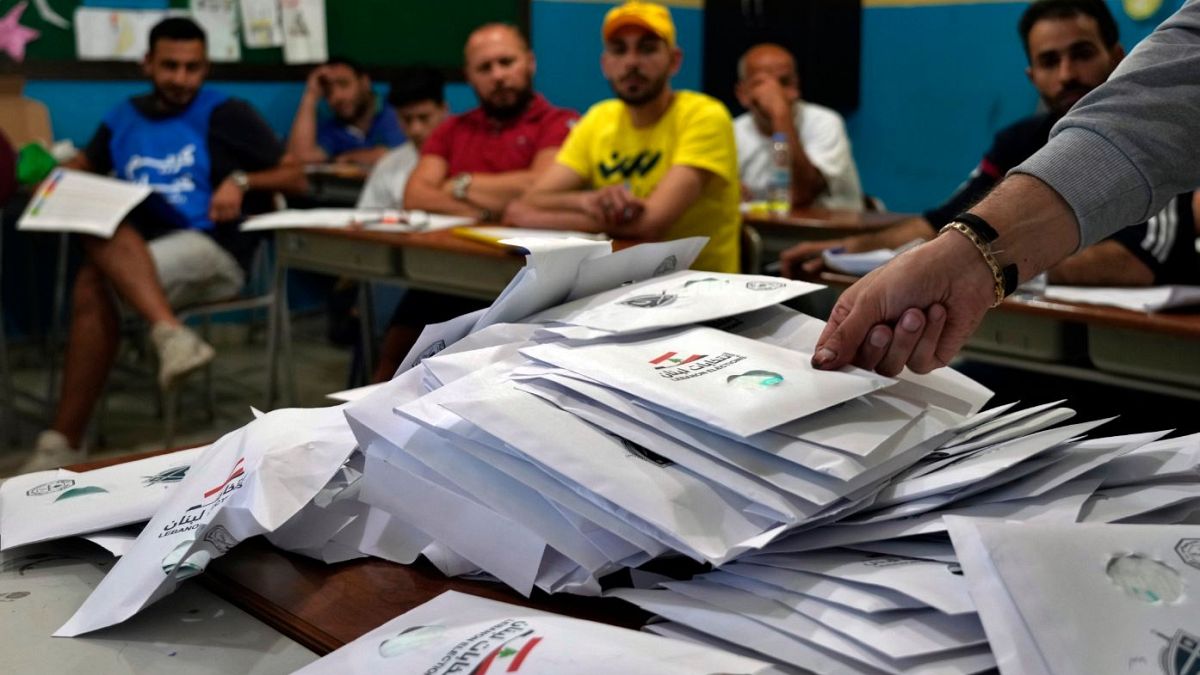It is the first election in Lebanon since a devastating economic crisis erupted in October 2019.
Lebanon's largest political bloc has lost its parliamentary majority, according to official election results.
The Iran-backed militant Hezbollah group and its allies lost several seats to its strongest opponents in Sunday's vote.
Hezbollah and its main Shiite ally, the Amal group of Parliament Speaker Nabih Berri, managed to retain the 27 seats allocated to the sect.
But the bloc lost the parliamentary majority it had held since 2018 and won just 61 seats -- a drop of 10 members since the last vote was held in 2018.
Final results on Tuesday showed Hezbollah’s Christian ally had lost ground to the right-wing Saudi-backed Christian Lebanese Forces party, headed by Samir Geagea.
With 19 seats, it has become the largest Christian party in the parliament, replacing the Hezbollah ally Free Patriotic Movement of President Michel Aoun.
Independent candidates -- including those who emerged amid anti-government protests in 2019 -- have meanwhile secured 14 seats. The final results on Tuesday also indicated a record of eight female MPs.
Critics say the result for independents sends a strong message to ruling class politicians who have held on to their seats despite a devastating economic collapse that has plunged the majority of the country into poverty.
Voter turnout was down to 41% from 49% in 2018, indicating that Hezbollah parties -- who have been in power for three decades -- may have failed to mobilise their supporters.
The Lebanese Association for Democratic Elections has claimed that its members were threatened and attacked by several groups, mostly in areas controlled by Hezbollah and Amal.
In a preliminary statement on Tuesday, the EU's Election Observation Mission said the poll had been "overshadowed by widespread practices of vote-buying, clientelism and corruption".
A fragmented parliament -- divided between pro and anti-Hezbollah lawmakers -- will make it harder for Lebanon to pass the new laws needed to begin the financial recovery.
Prime Minister Najib Mikati has urged new MPs to move quickly “because what we are passing through cannot withstand (political) bickering at the expense of priorities.”
Sunday's elections were the first in Lebanon since a devastating economic crisis erupted in October 2019, triggering nationwide protests against alleged corruption and mismanagement.
The crisis was further exacerbated by the COVID-19 pandemic and a devastating explosion in the port of Beirut in August 2020, which killed more than 200 people and destroyed parts of the capital.
Lebanon's new parliament will also elect a new president after Aoun’s term ends in October.
The spokesman for the UN Secretary-General has called for the “swift formation of an inclusive government” that can finalise an agreement with the International Monetary Fund and stabilise the country's economy.
